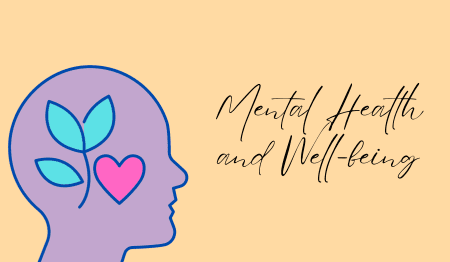How to create a mental health friendly workplace
Mental health is something we all have and is the way we think and feel. It involves our emotional, psychological, and social well-being. A person with poor mental health can struggle with stress, depression, anxiety, and much more. The pressures that a cold working environment bring can induce or worsen bad mental health. This is why I would like to discuss how to create a more mental health friendly workplace.
Encouraging Openness
The first step to a mental health friendly workplace is to encourage openness. Many times, employees struggle with their mental health as they feel they have no one to talk to. Team leaders and those of a higher status within the workplace should therefore try and encourage more openness about how they’re feeling. Doing this can help create a more relaxed and friendly environment, where employees are more likely to speak up about how they are feeling. The hardest step is to first recognise that something may be wrong and speaking up about it. By having a calming and welcoming work atmosphere, this will make it easier for someone to open up. It would also be helpful and encouraging for employers to educate their workers on how to help and reach out to someone who may be struggling, creating a supportive workplace culture.
The 4-As of Mental Health
Awareness, Accommodations, Assistance, and Access. This 4-step toolkit is key to ensuring a mental health friendly workplace.
Awareness
Firstly, the workplace needs awareness. All team members should take steps to educate themselves on the signs of bad mental health, and how to approach someone struggling. This will help build a supportive work culture.
Accommodations
Accommodations refer to what’s put into place to help and protect employees. For example, sick leave for mental health problems, not just physical illnesses. This can also make an employee feel much more valued if their mental health is taken seriously. Another accommodation could be the removal of distractions or introducing a quiet area for employees who wish to get some peace.
Assistance
Assistance involves not just accommodations in the workplace to help but providing programmes and actions externally as well. Some examples of assistance are fitness programmes to improve employee’s physical health, or stress management training to help with mindfulness. By using assistances, an employee’s mental and physical well-being can make minor improvements. This assistance can help stresses in both work and personal lives, such as family problems, money worries, or substance abuse.
Access
Finally, Access protects individuals struggling by ensuring there is access to help and treatments. Employers knowing where to seek external help is hugely important. This can point someone in the right direction to getting help, whether that’s seeing someone to talk to, or giving job-protected time off work to seek the help they want.

Team Activity Days
Every once in a while, it’s nice for a team leader to plan a day out or well-being day for their hard-working employees. For example, a team hike, or a meal out. This doesn’t have to be anything fancy, but to demonstrate that an employer has gone out of their way to plan something can go a long way. This is because employees will realise that they are valued and not just seen as workers. Being valued can really boost someone’s mental health as they realise they are wanted rather than needed. This can also help lead to more employee motivation and productivity.
Some examples of team days are:
- Bring your pet to work day. This is incredible for boosting serotonin and good moods.
- Puppy yoga
- Yoga/meditation class
- Nature hikes
- Afternoon tea
- Sightseeing
Action for Happiness
Action for Happiness is a great tool employers can use in their workplace. It has all sorts of resources, such as keys to happier living, and ways to take action. What employers can really use Action for Happiness for is their monthly calendar. Each month a calendar gets put out with a different mental health friendly action to take that day. Team leaders can make this calendar a fun daily activity for all their employees to involve themselves in. By doing so, the working environment will easily become more mental health friendly.
Mental health first-aid training
Having at least one member of staff in the office mental health first-aid trained can do wonders. Firstly, there is someone on hand to know what to do if a difficult situation arises. Secondly, a struggling member of staff might be more open to asking for help if they know it’s available. If there is a lack of training on how to help, the workplace is less mental health friendly and can lead to worsening mental health for employees.
Flexible Working
Offering flexible working is a great way to support staff with their mental health and allows them to have a good work-life balance. By allowing employees to make adjustments to their working patterns if they need to, can take some pressure away from them. For example, if they are juggling work with childcare or if they have a health appointment.
Mental Health Friendly Office
There are some simple things that can be done to ensure your office and working environment is mental health friendly. For example, creating a designated area for your employees to eat lunch, encourage regular breaks or encouraging your employees to get some fresh and go for a walk on their break.
Another idea for a creating a mental health friendly workplace is having different zones for working. For example, having pods or quiet zones for people who would like some quiet time to concentrate without distractions. Also have designated areas for group working and allow people to move from their desk to the different zones as they wish.
Summary of Creating a Mental Health Friendly Workplace
Personally, I love the idea of having team day outs. With long office hours, and lots of people now working from home, isolation is increasing, and less people are getting out. By going out with the people you work with, you’ll realise that they’re not just colleagues, but friends that are there for you as you create stronger bonds. In addition to this, I think that having someone in the office that is trained in dealing with mental health situations will be very helpful. Both of these can make someone feel more welcomed and open to wanting help.
Written by Ellie Pomfret, Marketing Intern at the Eventus Recruitment Group and Business Management student at Loughborough University.
About The Eventus Recruitment Group
We are award-winning recruitment specialists placing talented professionals within the Legal, HR, Finance and Accountancy sectors.
Here at the Eventus Recruitment Group, we offer realistic, honest and straight forward advice to both businesses and professionals, to grow your team or to enhance your career.
If you would like help hiring for a job vacancy, please click here to contact us for a confidential discussion. With offices in Lancashire and Cheshire and recruitment consultants based across England, we are best placed to find the top talent in your industry and location.
Further Reading
Employee benefits for Mental Health and Well-being
Ways you and your colleagues can support each others Mental Health and Well-being
Signs someone may be struggling with their mental health at work


